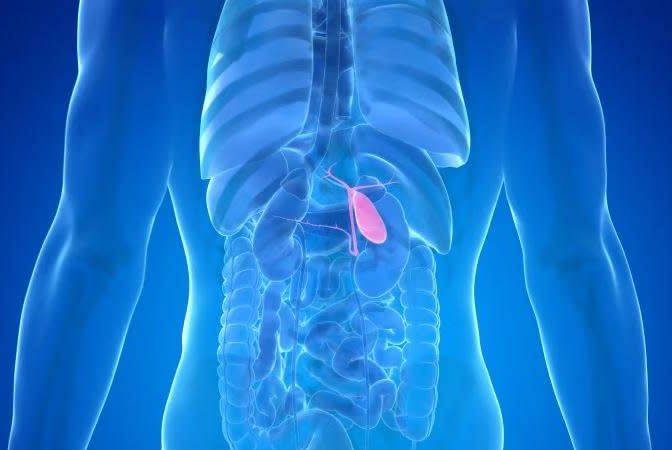Gallbladder cancer rates rise among Black Americans, remain stable for others

Gallbladder cancer rates are steadily increasing among Black Americans, even as they remain stable or decline for most other Americans, a new study warns.
Further, growing numbers of cases among Black people are not being diagnosed until later stages, according to the findings presented Monday at Digestive Disease Week 2024 in Washington, D.C.
"Gallbladder cancer diagnosis at late stage can be highly detrimental," increasing a person's risk of death and leading to more intensive and complex cancer treatment," said lead researcher Dr. Yazan Abboud, an internal medicine resident at Rutgers University New Jersey Medical School.
Gallbladder cancer has few to no symptoms in early stages, making it hard to detect, the researchers noted.
For the study, the scientists analyzed records for nearly 77,000 patients diagnosed with gallbladder cancer between 2001 and 2020 in the U.S. Cancer Statistics database, which covers nearly 98% of the U.S. population.
Gallbladder cancer rates were stable among White people and declined at an average rate of 0.6% for Hispanic people, researchers found.
But gallbladder cancer rates increased by more than 1% per year, on average, for Black people. Further, detection of late-stage tumors increased by nearly 3% a year, on average, during the study period.
"This could be due to a lack of timely access to healthcare leading to delayed diagnosis," Abboud said in a meeting news release.
Gallbadder cancer is one of the most aggressive forms of cancer, with a five-year survival rate of just 19%, researchers said.
About 43% of cancers in this study were found in late stages, including nearly 44% of cancers in Black patients compared to 41% in White and Hispanic people.
Late-stage symptoms include abdominal pain or bloating, unexplained weight loss, and yellow skin and eyes, researchers said.
Future studies should look into the reasons behind these racial disparities, with a goal of improving early detection across the board, Abboud noted.
Findings presented at medical meetings should be considered preliminary until published in a peer-reviewed journal.
More information
The American Cancer Society has more about gallbladder cancer.
Copyright © 2024 HealthDay. All rights reserved.


